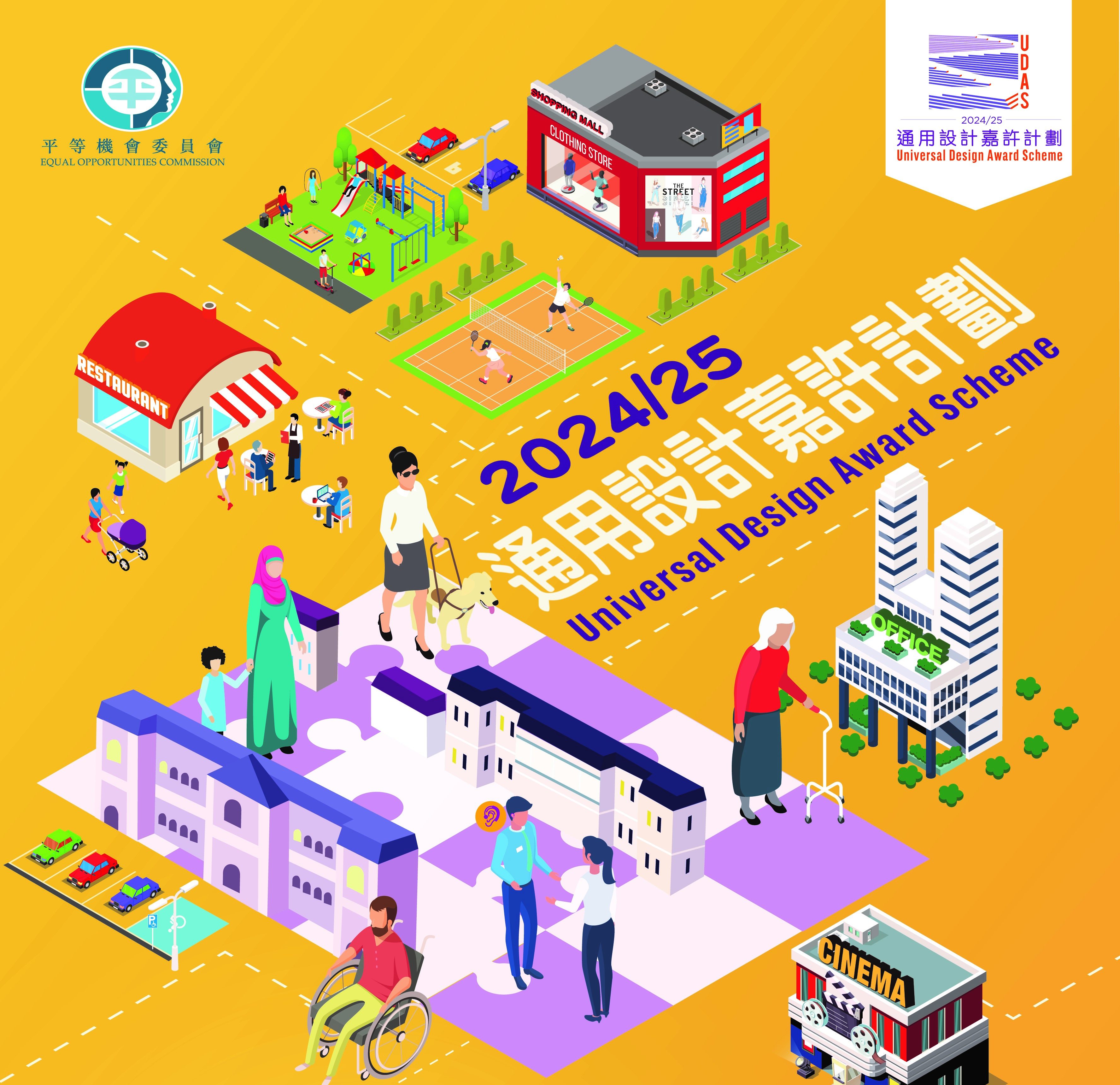
EOC calls for applications for Universal Design Award Scheme 2024/25
Hong Kong’s first Universal Design Award Scheme 2024/25 (UDAS) is now open for application until 15 April 2024. The scheme aims to recognise public and private organisations that have made outstanding contributions in implementing universal design, encourage the sharing of good practices in creating inclusive environments, and inspire more organisations to adopt these practices to enhance Hong Kong’s accessibility for everyone.
EOC Chairperson Mr Ricky CHU Man-kin said, “By participating in the UDAS, organisations can showcase the accessibility of their facilities and services to target customers and the general public. Not only would this help expand their customer base, but it would also strengthen their relationships with stakeholders.”
The UDAS comprises five application categories, including: (1) Shopping Malls and Retail Spaces, (2) Office Buildings and Office Spaces, (3) Restaurants, (4) Buildings and Sites with Recreational, Sports or Cultural Purposes, and (5) Revitalised Sites. These categories cover spaces that are commonly used in daily life for work, dining, shopping, and leisure activities. Participation in the UDAS is free of charge.
The EOC will organise three briefing sessions to explain the application process and the selection criteria of the UDAS. Two English sessions will be held on 23 February and 13 March 2024 respectively, while a Cantonese session will be held on 27 February 2024.
Separately, in a letter published in the South China Morning Post on 7 February 2024, EOC Chairperson Mr Ricky CHU Man-kin said Hong Kong society should adopt universal design to ensure that goods, facilities, and services are usable by everyone, regardless of age, ability, or status in life. He added that the principles of universal design can improve accessibility not only in the built environment, but also help eliminate barriers in the digital sphere.
Mr Chu wrote, “Emphasising equitable use, flexibility and intuitiveness, universal design can help us create a city that is more adaptable to the population’s changing needs.”

